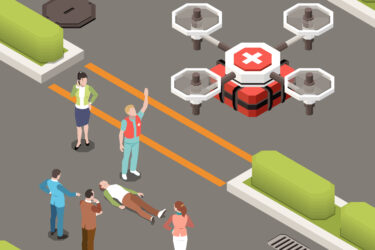
The largest health IT event of the year dropped into Las Vegas last week and brought along more than 43,000 attendees. The HIMSS conference is where chief information officers, chief medical information officers and other health care techies who usually toil in relative anonymity get to be rock stars for a week.
HIMSS – the Healthcare Information and Management Systems Society – is a leading voice in advancing and educating about technology in the health sector. Its annual conference is the must-attend event for those working in health IT and digital health.
There are a lot of great health care stories that come out of the HIMSS conference. Because technology has become so integrated in health care, attending HIMSS is a great opportunity for journalists to learn more about its growing influence on the health sector and get story ideas and meet sources.
Here are seven of my takeaways from HIMSS this year:
- There are enormous expectations around Apple, Amazon, Google and Uber’s entrance into health care but it’s unclear how successful they will be in disrupting the status quo of health care. Dan Michelson shares his perspective at Becker’s Hospital Review.
- Artificial intelligence (AI) is very exciting but to work in health care it must augment and support the human intelligence already in the room. Machines won’t replace doctors. Former Alphabet Executive Chairman Eric Schmidt gave a buzzed-about keynote talk on this topic at the conference, covered by Modern Healthcare’s Rachel Z. Arndt.
- Our population both nationally and globally is aging and we need smart technology in order to take care of seniors with our relatively small health care workforce. Today, there are 23 health workers per 10,000 people, on average, worldwide. “This is not something in the future,“ said HIMSS CEO Harold F. Wolf, III. “It’s a problem on top of us right now.”
- Physicians are burnt out because of click-based tasks that came with digitization of medical records. Instead of removing the technology, making it smarter seems to be the path. Examples are voice recognition to dictate notes into the EHR, removing unnecessary clicks like making physicians type in their password every time, more training on EHR shortcuts and having medical assistants take over EHR click-based tasks.
- Medicine is moving from paternalistic to participatory and patients of all ages are craving a smarter, more meaningful experience with their providers and care teams. But we need data interoperability and empathy to get there – both were big themes this year. Mike Miliard at HealthcareITNews reports. And Christina Farr of CNBC shared her take on the topic after attending HIMSS.
- The Trump administration wants people to be in control of their own medical data. CMS Administrator Seema Verma announced two initiatives around this theme at HIMSS. You can read Mark Hagland’s insightful piece on the announcement here.
- Blockchain technology (which today is mostly associated with Bitcoin and other cryptocurrencies) could be big in health care but it is expensive and few in health care understand how to works or the use cases for reducing costs and improving efficiencies.








